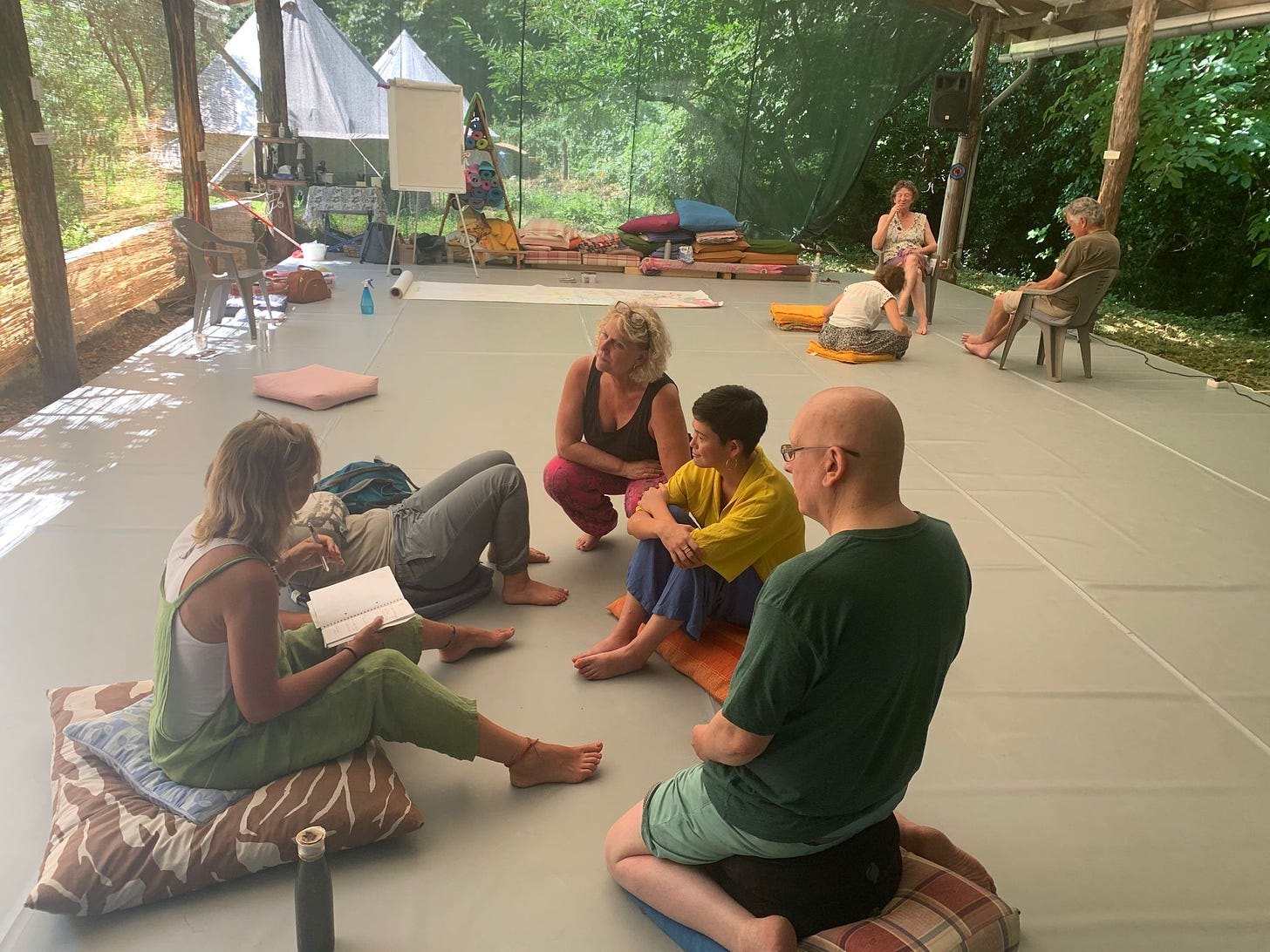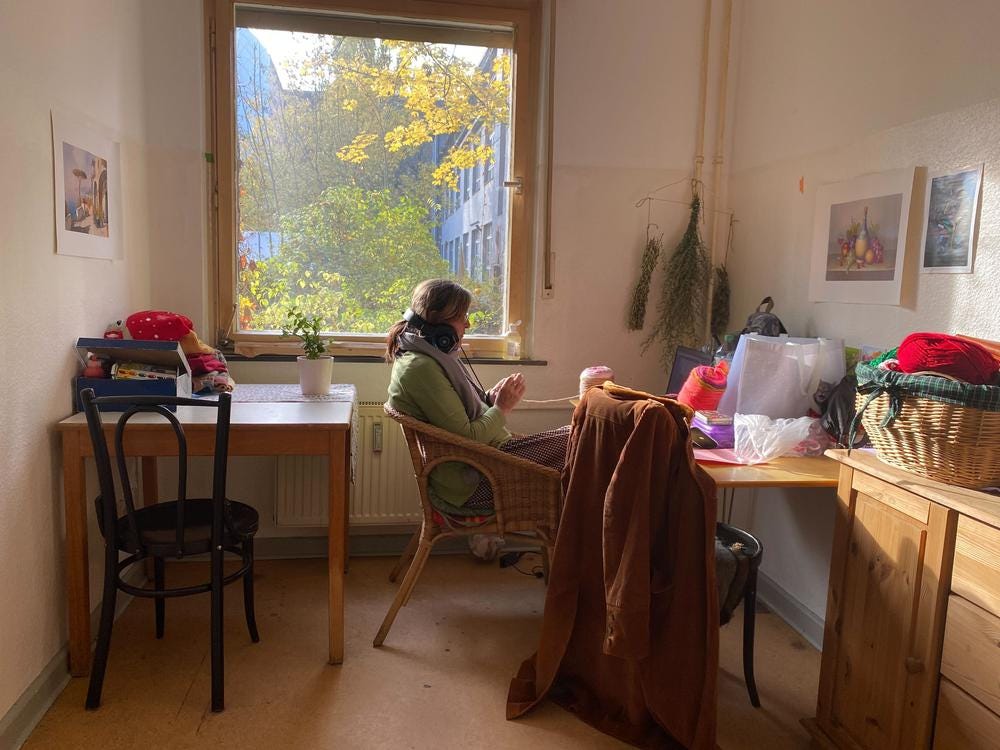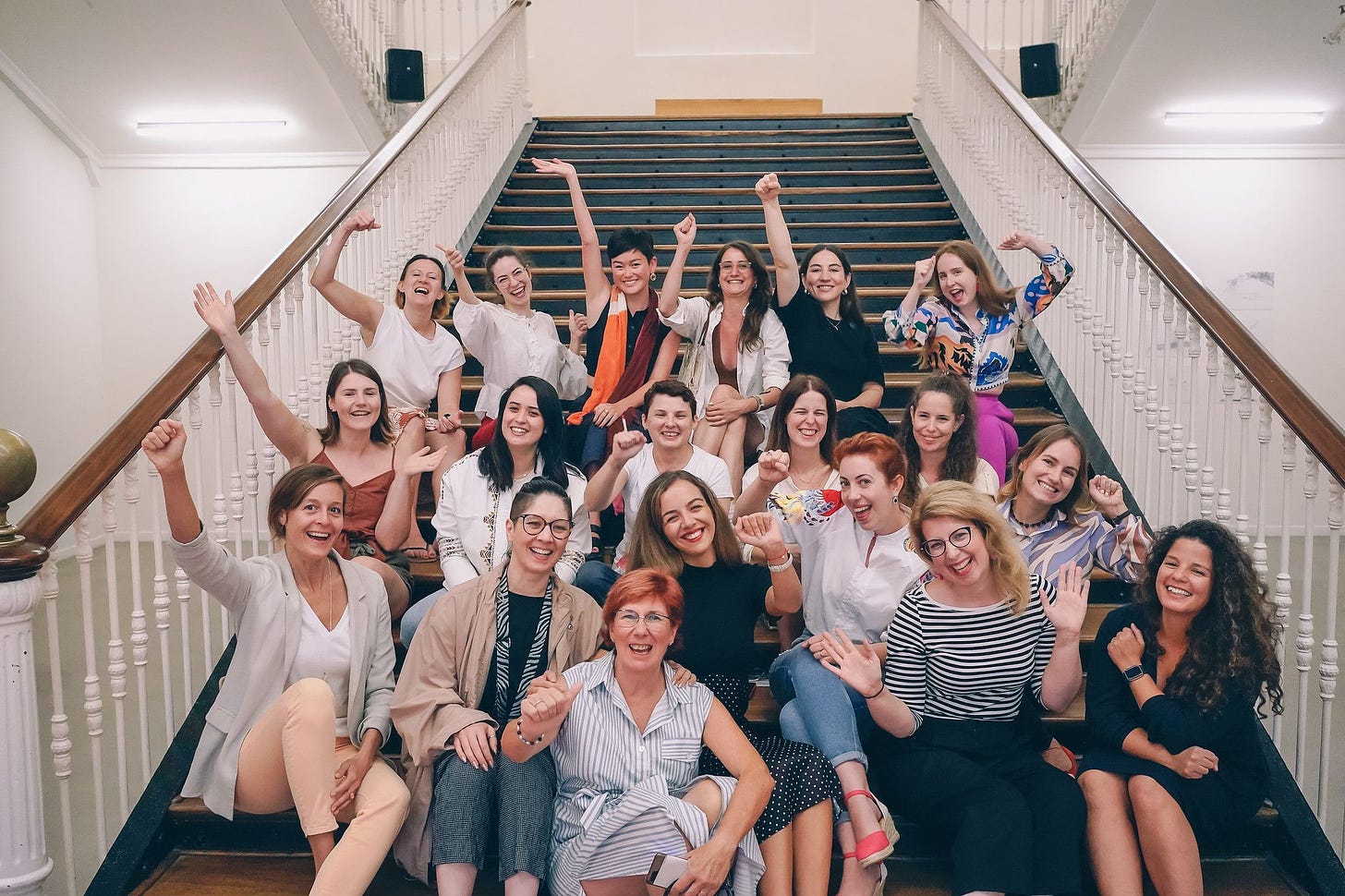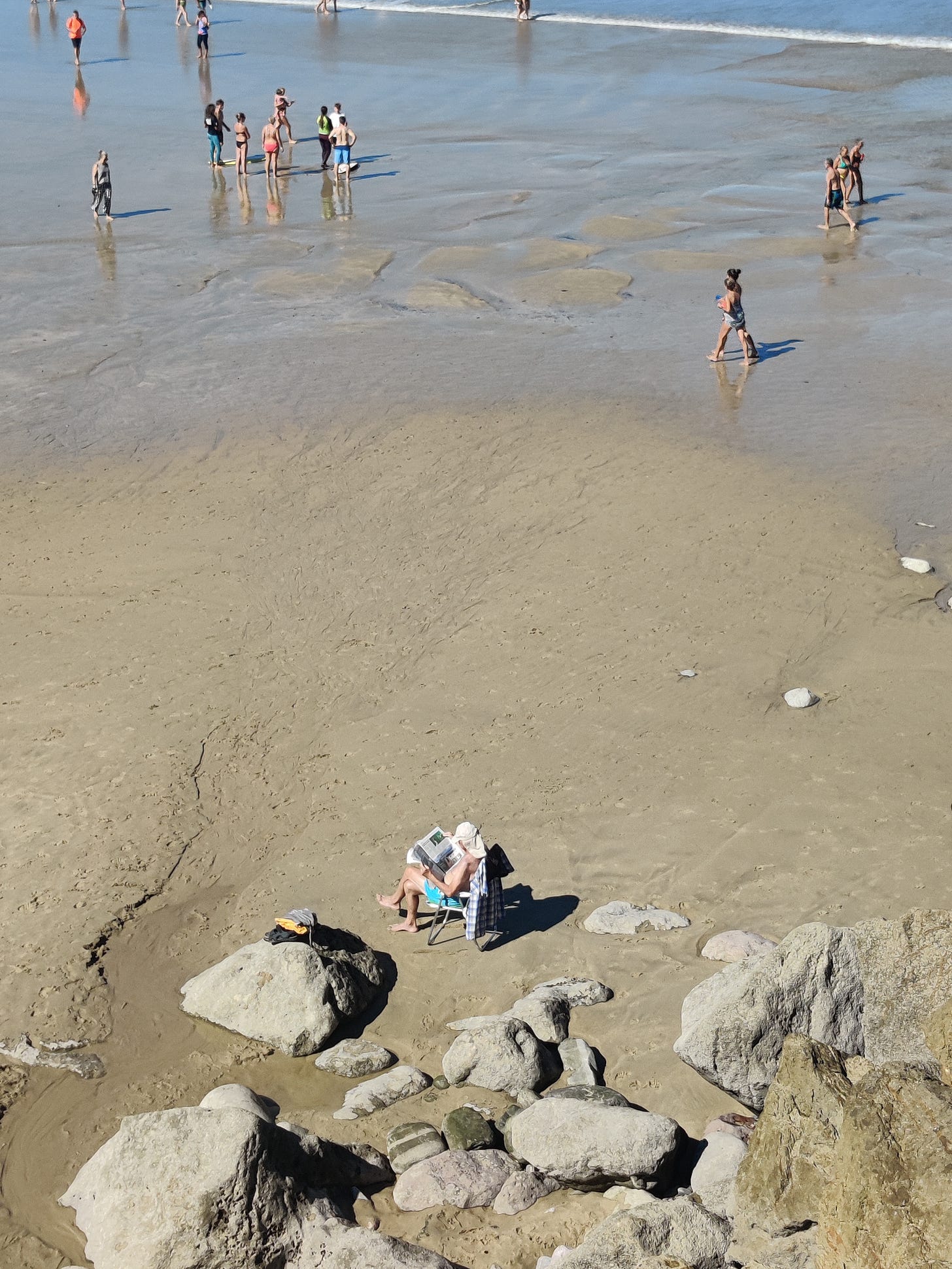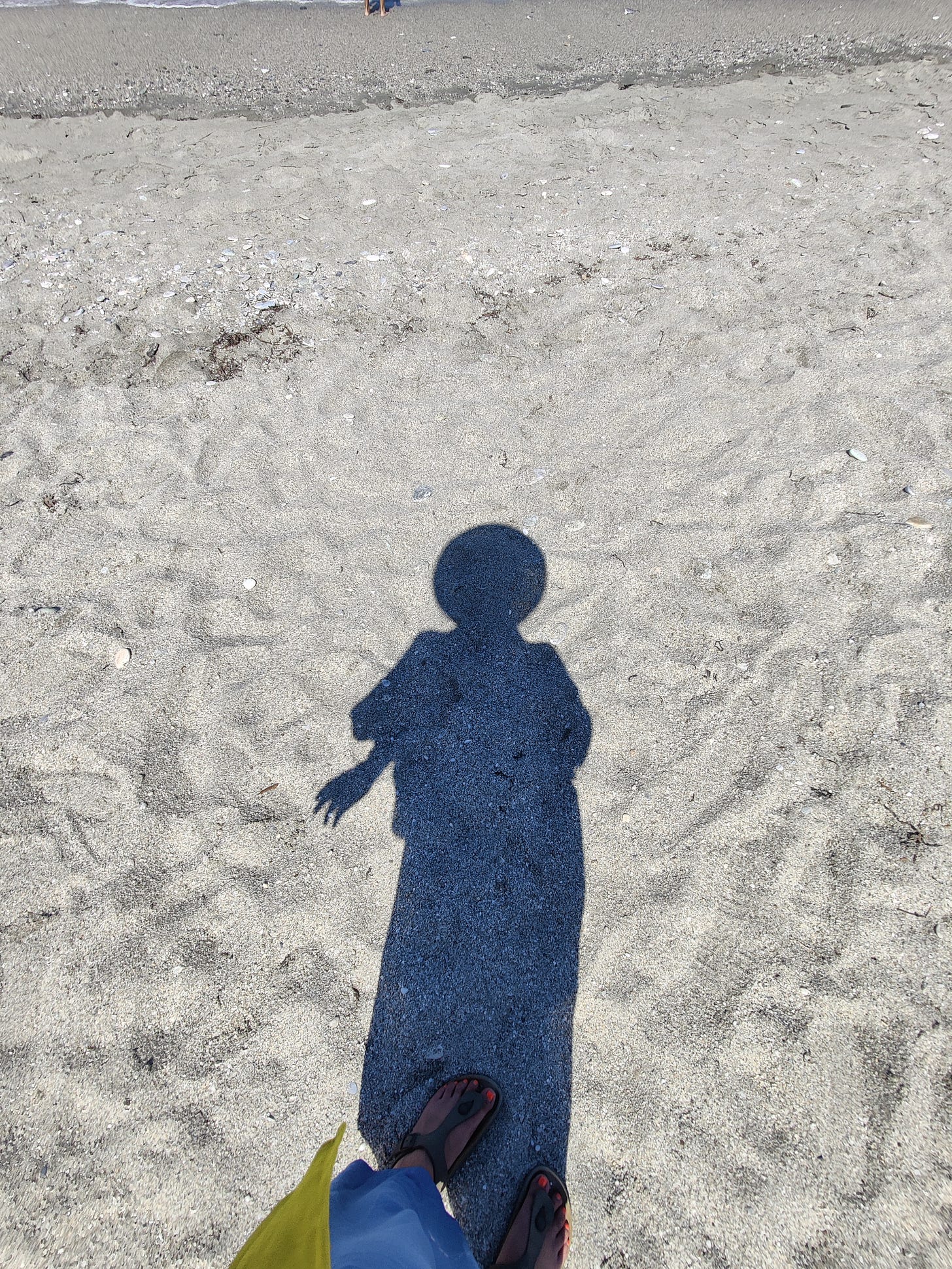How Embracing Nothingness Had Me Fall in Love with Loneliness
An End-of-Year Reflection on Self-Discovery, Community, and Reimagining What Draws Us Closer to Ourselves and Each Other
When I departed from the House of Beautiful Business a few months ago, I expected to fall into a void. Not only because it’s never easy to leave something you love, but because suddenly, you’re on your own again. For the past five years, I’ve cultivated this space as a home, a realm for learning and unlearning—and of becoming. To step out of everything I knew and known, into the entire unknown, felt necessary. It was time. And yet, choosing not to have a plan, not making the next smart move, and responding to people’s question “So, what’s next?’ with a smile and an honest “The great nothingness!” felt scary, too. But I had sensed it in my bones that, indeed, it was time to leap. To trust that everything will fall into its place in the way it should. “The universe always knows!” I often tell my partner, who just grins at me.
The void never appeared. The doubts did, and still do, but I never found myself in the expected airlessness of not knowing what to do with myself or feeling urged to keep myself busy.
Instead, I found spaciousness—in nothingness.
“I can finally read again!” I told my local bookseller. You might give me the same pitiful yet delighted look he gave me back then, but it had been a long time since I spent an afternoon simply reading and immersing myself in the worlds of others. I cherished quality time with my friends, who envied my newfound freedom. Embracing the rhythm of each day as it came, taught me about my natural pace. I realized I’m not much of an early bird; I actually enjoy taking time in the morning. Maybe I went a little overboard with croissants and oat cappuccinos, but hey, I'm still a Taurus.
Being in the spaciousness in nothingness, I sought out connection and community—and found it in unforeseen spaces.
Seeing and hearing from the heart
At a holistic community center in Greece
Nestled between Mount Pelion and the sea, this holistic community center sits in the region known to be the place where the Olympian gods spent their summer holidays. Governed by proven rituals, structures, and clear roles, and responsibilities, the core team has kept it afloat for the the past decade. In a diverse group of thirty people spanning ages from mid-20s to around 70, I found that simple acts like preparing and serving food became communal experiences. We each took turns signing up for these tasks throughout the week, resulting in smiles, genuine thank-yous, and helping us integrate into the group.
Through a foundational course on nonviolent communication led by facilitator Tracy Seed, I grasped the power of differentiating thoughts from judgment, feelings from needs, and requests from demands—essential for repairing relationships and practicing restorative justice in communities. Connecting with others, I learned, begins with understanding body language and cultivating the ability to listen from the heart. Given my struggles with short temper and anger, I was offered powerful tools to navigate this aspect of myself and learn how to resolve disagreements and conflict more effectively.
As the psychologist, peacemaker, and founder of nonviolent communication, Marshall B. Rosenberg put it in his book: “Anger is a result of life-alienating thinking that is disconnected from needs. It indicates that we have moved up to our head to analyze and judge somebody rather than focus on what we are needing and not getting.”
Giving for the sake of giving
Volunteering in Berlin
Back in Berlin, I dedicated a few hours weekly to a newly founded shelter for homeless and unhoused women, named “Unterschlupf”. The founder expressed, “Living on the streets of Berlin is very tough, especially for women; they often become lone warriors. Here, we aim to create a sense of community, treating everyone with respect and dignity.” After a few weeks, it became evident that the women returned not just for the provided essentials but for the genuine care, loving humor, and fearless truthfulness exchanged among all.
Witnessing some gradually open up over time, finding their place, and lightening up through contribution rather than dependency, taught me that, despite challenging circumstances, our shared humanity surpasses appearances. Giving without expecting to receive, I discovered, almost always leaves you feeling nourished.
Seeking togetherness and aloneness
The Break Fellowship in San Sebastián
In October, I had the privilege of traveling to San Sebastián in Northern Spain as part of The Break Fellowship, an EU-funded program for female entrepreneurs. After several weeks of online webinars, I found myself as part of a group of 18 women turned into temporary family members, fellow seekers, and supporters.
Sharing an apartment with six of them and a room with one, none of us in our 30s and 40s had anticipated the co-living aspect of the month, yet it turned out to be a memorable experience. We swiftly adapted to rhythms, learned about each other’s quirks, and openly discussed disagreements. By the second week, initial masks dropped, first impressions transformed, and our genuine characters emerged—assisted by generous amounts of local wine, txakoli, pintxos, and the warmth of our local host organization.
While our primary goal was advancing our professional pursuits, it felt like each of us had grown not just professionally but personally. What I realized was how striking a balance between togetherness and aloneness is essential for well-being, especially within close-knit community settings.
Reflecting on my anxious attachment tendencies—focusing too much on others’ needs at the expense of mine—I deliberately made space for being alone. Whether hiking, exploring a nearby town, or sitting on the beach watching waves and surfers, I learned that aloneness was not just crucial for regulating energy and well-being but an integral part of who I am.
Inspired by fabulously put-together elderly Spanish citizens who radiated life and companionship, I entertained the idea of future co-housing—shared kitchens or gardens, bringing people and families together to share everyday tasks and the weight of life challenges.
Through these community encounters and introspective conversations, I found myself gradually falling in love with the idea of loneliness.
Wherever there’s community and togetherness, a sense of loneliness lingers. It’s an integral part of the human experience—not merely a physical absence of meaningful social connections, but a complex blend of emotional and spiritual yearning to be seen and to be heard.
During my tenure at the House of Beautiful Business, I noticed many sharing an existential form of loneliness—a deep-seated desire to feel less alone in their pursuit of business-as-unusual.
We all feel lonely at times, and that is perfectly okay.
Nevertheless, the extent of collective loneliness prevalent across all age groups and geographies—and its repercussions on our health, relationships, and overall quality of life—is deeply concerning.
Smartphones, dating, apps, and AI have crept into our most intimate thoughts, relationships, and bedrooms. While affecting all age groups, loneliness notably impacts my generation and younger ones, contributing to the ongoing global mental health crisis and rising instances of social anxiety, depression, and suicidal thoughts. This distress is intensified by the demands of our neoliberal capitalist society which isolates and compartmentalizes us into single units of labor, personalized echo chambers, and one-bedroom apartments—all in pursuit of greater convenience, independence, and freedom, albeit at the cost of distracting ourselves from one another and turning inward.
In the words of Korean-German philosopher Byung-Chul Han:
“It is especially this internal pressure, this pressure to perform and optimize, that makes us tired and depressed. So it is not oppression but depression that is the pathological sign of our times. Only an oppressive regime provokes resistance. The neoliberal regime, which does not suppress but exploits freedom, does not encounter resistance. Authority is complete when it masquerades as freedom. These are insights that lie at the heart of my sociocritical essays. They can be summarized as the other disappears.”
The concept of this “Other” as referred to by Han, is not just you or me; it encompasses all of us. Rather than succumbing to isolation and separation, we might turn to the “Other” again to create genuine togetherness, community, and a sense of being-in-the-world.
It is within the presence of the “Other” that we can recognize our existence, fulfilling our fundamental need to be seen, heard, and understood.
By embracing interdependence and our shared reality in the world, we truly come alive.
Perhaps, ironically, loneliness—and our uniquely shared experiences of it—can guide us in this process. We must start embracing loneliness as part of our human condition and understand it as a signal for underlying neglected needs.
What is it that we truly long for in a hyper-connected world? Instead of simply advocating for even “more connection”, I’d argue we first need more nuance in understanding each other’s experiences of what it means to be lonely and sit with the discomfort of not having a one-size-fits-all solution just yet.
Rather than seeking an external fix, we might shift towards nurturing inherent capacities that we already hold, such as:
How to be alone—with ourselves, our thoughts, and our complicated feelings. Not in the superficial way that the self-care industry promotes as another masked distraction, but with an unabashed look in the mirror of our souls, to moment-to-moment become more at ease with being who we are and with ourselves.
How to be with others—whether friends, colleagues, or acquaintances. Starting from a place of curiosity, learning to listen, and engaging through conversation that is free from assumptions, judgment, and the narratives we tell ourselves or those we’re told that we can’t escape. Also, learning how to navigate difficult conversations, dissent, and conflict.
How to be with the world—by reconnecting with those around us, be it in our proximity or on the other side of the world. Practicing critical thinking, engaging in acts of service for people in need, and purposefully seeking dialogue with other perspectives, whether with a person of a different demographic, social status, cultural background, or political conviction.
In the coming year, I will be delving deeper into Sharing Our Loneliness, an open-ended experiment to explore what it means to be lonely in today’s day and age, how we experience it, and uncover ways that might bring us closer to each other—and ourselves once more.
If you’re interested in joining to share (y)our loneliness, nurture these capacities, or collaborate, please sign up here!
With love for your 2024,
Monika




